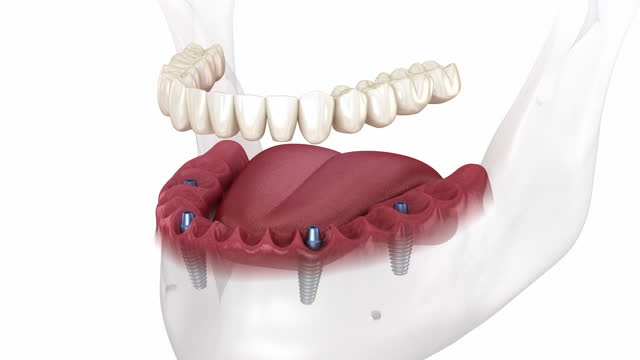Complete Guide to Dental Implants: Benefits, Procedures, and Choosing the Best Dental Tooth Implant
Dental implant have revolutionized modern dentistry, providing a durable and aesthetically pleasing solution for missing teeth. If you’re considering dental implants, understanding their benefits, the procedures involved, and how to choose the best option is crucial for making an informed decision. This comprehensive guide will cover everything you need to know about dental implants, ensuring you are well-prepared to achieve a healthier, more confident smile.
What Are Dental Implants?
Dental implants are artificial tooth roots that provide a permanent base for replacement teeth or bridges. They are typically made of titanium, which is biocompatible and integrates well with the bone.
Components of a Dental Implant
This fixture serves as the foundation for the replacement tooth.
- Abutment: A connector piece that attaches to the implant fixture and holds the replacement tooth or bridge in place. The abutment is typically made of metal or ceramic.
- Crown: The visible part of the dental implant, which is a custom-made tooth-like structure that fits over the abutment. The crown is designed to match the appearance of your natural teeth.
Benefits of Dental Implants
- Natural Look and Feel:
- Dental implants are designed to look, feel, and function like natural teeth. The custom-made crowns blend seamlessly with your existing teeth, providing a natural appearance.
- Durability and Longevity:
- They are resistant to decay and typically do not require special maintenance beyond regular oral hygiene.
- Improved Functionality:
- Implants restore full chewing function, allowing you to eat and speak confidently.
- Preservation of Jawbone:
- Dental implants help maintain the integrity of the jawbone by stimulating bone growth. This prevents bone loss that can occur with missing teeth, maintaining facial structure and preventing sagging.
- Enhanced Oral Health:
- Implants do not require alteration of adjacent teeth for traditional bridges. This preserves the health of surrounding teeth and reduces the risk of additional dental problems.
The Dental Implant Procedure
The dental implant process typically involves several stages and requires careful planning. Here’s an overview of the procedure:
1. Initial Consultation and Planning
- Evaluation: Your dentist will perform a thorough examination, including X-rays and possibly a CT scan, to assess your oral health and determine the suitability of implants.
3. Abutment Placement
4. Crown Placement
- Final Adjustment: Your dentist will make any necessary adjustments to ensure proper fit and function.
Choosing the Best Dental Tooth Implant
Selecting the right dental implant solution involves considering several factors to ensure the best results:
1. Type of Implants
- Endosteal Implants: The most common type, placed directly into the jawbone. They are suitable for patients with sufficient bone density.
- Subperiosteal Implants: They are used for patients with insufficient bone density who are not candidates for endosteal implants.
- Zygomatic Implants: Longer implants anchored in the cheekbone (zygoma) used for cases of severe bone loss in the upper jaw.
2. Material and Design
- Titanium Implants: Titanium implants have a long track record of success.
- Zirconia Implants: Made from ceramic materials, zirconia implants offer a metal-free option and are ideal for patients with metal sensitivities.
3. Implant Specialist
- Experience: Choose a dentist or oral surgeon with extensive experience and specialized training in dental implant procedures.
4. Costs and Insurance
- Cost: Dental implants can be a significant investment. Consider the costs associated with the entire procedure, including consultations, surgery, abutments, and crowns.
- Insurance and Financing: Check with your insurance provider to understand coverage options for dental implants. Many clinics offer financing plans to make the procedure more affordable.
Aftercare and Maintenance
Proper aftercare is essential for the longevity and success of your dental implants:
- Oral Hygiene:
- Maintain a rigorous oral hygiene routine, including brushing twice a day, flossing daily, and using an antimicrobial mouthwash. Regular dental check-ups are crucial to monitor the health of your implants and surrounding teeth.
- Diet:
- Avoid chewing hard or sticky foods that could damage the implant or crown.
- Regular Check-ups:
- Schedule regular visits to your dentist for professional cleanings and examinations. Your dentist will assess the condition of your implants and address any issues promptly.
Common Questions About Dental Implants
- What Are the Risks of Dental Implants?
- What Are the Risks of Dental Implants?
- Here are the common risks explained in simple terms:
- Infection:
- Just like with any surgery, there is a chance of infection at the implant site. This can usually be managed with antibiotics and proper care.
- Implant Failure:
- Sometimes, the implant may not properly integrate with the jawbone.
- Damage to Nearby Teeth or Nerves:
- There is a small risk of the implant affecting nearby teeth or nerves. Skilled surgeons take precautions to minimize this risk.
- Bone Loss:
- If the jawbone doesn’t heal properly around the implant, it can lead to bone loss. This might require additional treatments to correct.
Conclusion
Dental implants offer a reliable and aesthetically pleasing solution for replacing missing teeth.
At HASH CLINICS, we are dedicated to providing exceptional dental implant services with a focus on precision, care, and patient satisfaction. Our experienced team uses advanced oral braces technology to ensure the best results for your dental implant needs. Contact us today to schedule a consultation and take the first step towards a brighter, healthier smile.
















